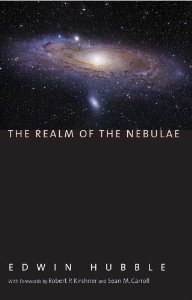A few recent events, including the launch of Nautilus and this interesting thread on Brian Leiter’s blog, have brought the John Templeton Foundation (JTF) back into the spotlight. As probably everybody knows, the JTF is a philanthropic organization that supports research into the “Big Questions of human purpose and ultimate reality,” encourages “dialogue among scientists, philosophers, and theologians,” and seeks to use science to acquire “new spiritual information.” They like to fund lots of things I find interesting — cosmology, physics, philosophy — but unfortunately they also like to promote the idea that science and religion are gradually reconciling. (As well as some projects that just seem silly.) They also have a huge amount of money, and they readily give it away.
I don’t think that science and religion are reconciling or can be reconciled in any meaningful sense, and I believe that it does a great disservice to the world to suggest otherwise. Therefore, way back in the day, I declined an opportunity to speak at a Templeton-sponsored conference. Ever since then, people have given me grief whenever my anti-Templeton fervor seems insufficiently fervent, even though my position — remarkably! — has been pretty consistent over the years. Honestly I find talking about things like this pretty tiresome; politics is important, but substance is infinitely more interesting. And this topic in particular has become even more tiresome as people on various sides have become increasingly emotional and less reflective. But I thought it would be useful to put my thoughts in one place, so I can just link here the next time the subject arises.
In brief: I don’t take money directly from the Templeton Foundation. You will never see me thanking them for support in the acknowledgments of one of my papers. But there are plenty of good organizations and causes who feel differently, and take the money without qualms, from the World Science Festival to the Foundational Questions Institute. As long as I think that those organizations are worthwhile in their own right, I am willing to work with them — attending their conferences, submitting articles, whatever. But I will try my best to convince them they should get money from somewhere else.
I’ve had various opportunities to get money from Templeton, and I certainly don’t come running to blog about it every time the possibility arises. Once I even got a call from a corporate head-hunter who wanted to inquire about my interest in a job with JTF. (Someone had clearly not done their homework.) But it’s not, as many people argue, because I am worried that Templeton works in nefarious ways to influence the people it funds. That is pretty unclear; there are some dark murmurings to that effect, with this piece by John Horgan being perhaps the most explicit example, but little hard evidence. It wouldn’t be utterly shocking to find that a funding agency tried to nudge work that it supported in directions that it was favorable to; that’s the kind of thing that funding agencies do. But there are plenty of examples of people receiving money from JTF and swearing that they never felt any pressure to be religion-friendly. More importantly, I don’t see much evidence that the JTF is actively evil, in (say) the way the Discovery Institute is evil, deliberately lying in order to advance an anti-science agenda. The JTF is quite pro-science, in its own way; it’s just that I think their views on science are very wrong.
And that’s the real reason why I don’t want to be involved directly with Templeton. It’s not a matter of ethical compromise; it’s simply a matter of sending the wrong message. Any time respectable scientists take money from Templeton, they lend their respectability — even if only implicitly — to the idea that science and religion are just different paths to the same ultimate truth. That’s not something I want to do. If other people feel differently, that’s for them and their consciences, not something that is going to cause me to shun them.
But I will try to explain to them why it’s important. Think of it this way. The kinds of questions I think about — origin of the universe, fundamental laws of physics, that kind of thing — for the most part have no direct impact on how ordinary people live their lives. No jet packs are forthcoming, as the saying goes. But there is one exception to this, so obvious that it goes unnoticed: belief in God. Due to the efforts of many smart people over the course of many years, scholars who are experts in the fundamental nature of reality have by a wide majority concluded that God does not exist. We have better explanations for how things work. The shift in perspective from theism to atheism is arguably the single most important bit of progress in fundamental ontology over the last five hundred years. And it matters to people … a lot.
Or at least, it would matter, if we made it more widely known. It’s the one piece of scientific/philosophical knowledge that could really change people’s lives. So in my view, we have a responsibility to get the word out — to not be wishy-washy on the question of religion as a way of knowing, but to be clear and direct and loud about how reality really works. And when we blur the lines between science and religion, or seem to contribute to their blurring or even just not minding very much when other people blur them, we do the world a grave disservice. Religious belief exerts a significant influence over how the world is currently run — not just through extremists, but through the well-meaning liberal believers who very naturally think of religion as a source of wisdom and moral guidance, and who define the middle ground for sociopolitical discourse in our society. Understanding the fundamental nature of reality is a necessary starting point for productive conversations about morality, justice, and meaning. If we think we know something about that fundamental nature — something that disagrees profoundly with the conventional wisdom — we need to share it as widely and unambiguously as possible. And collaborating with organizations like Templeton inevitably dilutes that message.
There’s no question that Templeton has been actively preventing the above message from getting across. By funding projects like the AAAS Dialogue on Science, Ethics, and Religion, the JTF has done its best to spread the impression that science and religion get along just fine. This impression is false. And it has consequences.
So I won’t directly work with or take money from the JTF, although I will work with people who do take money from them — money that is appropriately laundered, if you will — if I think those people themselves are worth supporting or collaborating with in their own right. This means that approximately nobody agrees with me; the Templeton-friendly folks think I’m too uptight and priggish, while the anti-Templeton faction finds me sadly lacking in conviction. So be it. These are issues without easy answers, and I don’t mind taking a judicious middle ground. It’s even possible that I’ll change my mind one way or another down the road, in response to new arguments or actions on the part of the parties involved.
And if anyone is tempted to award me the Templeton Prize, I will totally accept it! And use the funds to loudly evangelize for naturalism and atheism. (After I pay off the mortgage.)


